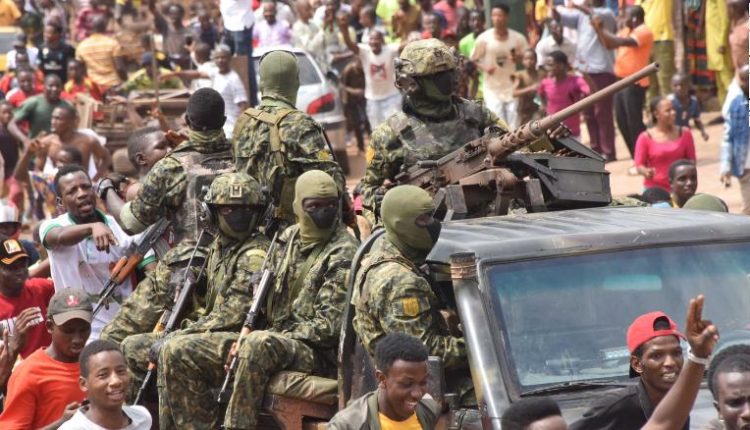Coups making comeback in Africa

In just over a year, Africa has experienced three successful coups (two in Mali and one more recently in Guinea), one unsuccessful coup attempt in Niger, and an arbitrary military transfer of power in Chad following the assassination of its president.
These power grabs threaten a reversal of the democratization process Africa has undergone in the past two decades and a return to the era of coups as the norm.
According to one study, sub-Saharan Africa experienced 80 successful coups and 108 failed coup attempts between 1956 and 2001, an average of four a year. This figure halved in the period from then till 2019 as most African nations turned to democracy, only for it to once again be on the ascendance.
Different decade, same problems
In the early postcolonial decades when coups were rampant, Africa’s coup leaders virtually always offered the same reasons for toppling governments: corruption, mismanagement, poverty.
The leader of Guinea’s recent coup, Colonel Mamady Doumbouya, echoed these justifications, citing “poverty and endemic corruption” as reasons for overthrowing 83 year old president Alpha Conde. The soldiers who led a coup in neighbouring Mali last year claimed “theft” and “bad governance” prompted their actions. Likewise, the Sudanese and Zimbabwean generals who toppled Omar al-Bashir in 2019 and Robert Mugabe in 2017 respectively, deployed similar arguments.
While well-worn, these justifications still resonate with many Africans today for the simple reason they continue to accurately depict the reality of their countries. Furthermore, in many countries, people feel these problems are worsening.
The research network Afrobarometer conducted surveys across 19 African countries which showed 6 in 10 respondents saying corruption is increasing in their country (the figure was 63% in Guinea) while 2 in 3 say their governments are doing a poor job fighting it.
Furthermore, 72% believe ordinary citizens “risk retaliation or other negative consequences” if they report corruption to authorities, a sign Africans believe their public institutions are not just partakers in, but active defenders of, corrupt systems.
When it comes to poverty, an already tragic situation has been worsened by the battering Africa’s fragile economies took from the coronavirus pandemic.
One in three people are now unemployed in Nigeria, West Africa’s largest economy. The same goes for South Africa, the most industrialized African nation. It is now estimated the number of extremely poor people in sub-Saharan Africa has crossed the 500 million mark, half the population.
This in the youngest continent in the world with a median age of 20 and a faster-growing population than anywhere else, further intensifying an already fierce competition for resources.
These conditions create fertile conditions for coups and for increasingly desperate young Africans who have lost patience with their corrupt leaders to welcome coupists promising radical change, as was witnessed on the streets of Guinea following the takeover, with some elated Guineans even kissing the soldiers.
But as with the coups of the 1970s these scenes of joy will likely be shortlived, says Joseph Sany, Vice President of the Africa Center at the United States Institute of Peace. “The initial reaction of what you see on the streets will be of joy, but very soon, people will be demanding action… and I’m not sure the military will be able to deliver on the expectations, basic service delivery, more freedoms,” he says. CNN

Comments are closed.